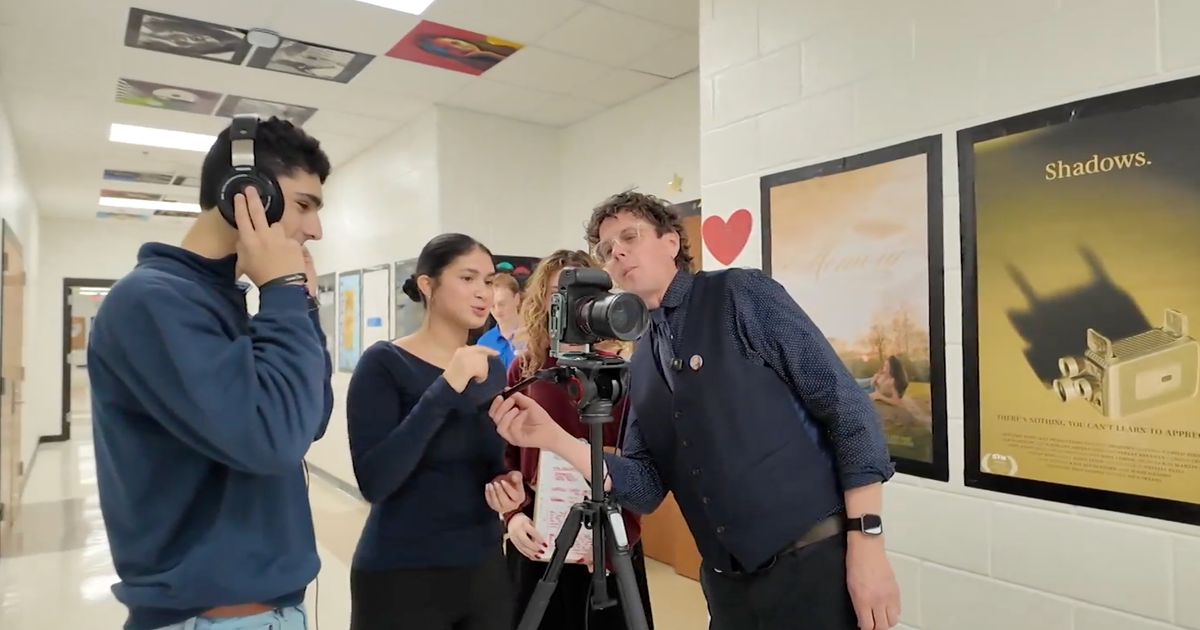Chicago area college studying benefits and dangers of artificial intelligence
CHICAGO (CBS) -- A north suburban college is studying artificial intelligence, but not just from a technical standpoint.
Thanks to a new $1.2 million grant from the Mellon Foundation, a Lake Forest College professor is leading a team to investigate the technology from a human perspective, including what it means to be human in a world with AI-creating art.
Professor Davis Schneiderman created a new AI chatbot, Cosimo, to help students understand the artwork in the school's Krebs Center for the Humanities.
"We want to think about the ethical aspects of artificial intelligence"
In a display of how Cosimo works, Schneiderman asked the chatbot about why a statue of Moses in the Krebs Center's collection has horns.
"Moses is often depicted with horns in traditional art, particularly in Western Christian art, but the reason for this stems from a mistranslation in the Bible," Cosimo said.
Schneiderman said he didn't program Cosimo to say that. The information was part of its training.
The professor, his faculty, and students will be creating chatbots like Cosimo thanks to a $1.2 million grant to study artificial intelligence, but it's much more than just chatbots.
"We want to think about the ethical aspects of artificial intelligence. We want to think about issues of bias, of surveillance," Schneiderman said.
With all the subjects they teach – like philosophy, art, and science – Schneiderman said, as a liberal arts school, Lake Forest College is the perfect school to study the tech that's already shaping our world.
"You can't be a specialist in just one thing to think about all the social, ethical, religious, economic impacts of artificial intelligence," he said.
"This is a pathway to discovery"
Students Sarah Faller and Ethan Karabanow are interested in taking AI classes.
"There's this really big narrative right now that the humanities are being outdated. Like, people when I tell them that I'm studying English, are like, 'Why? You know, we don't really need that anymore. Like, what is the point of your degree?' And I think that bringing modern technology into the humanities right now is very important," Faller said.
"We use artificial intelligence on a daily basis. So I think it's very important for our generation and the generations to follow to become more informed about what AI is all about," Karabanow said.
Schneiderman's grant lasts for about 3 ½ years, and in that time, even he doesn't know where his AI studies will take him.
"We don't entirely know what we're going to discover, but we know that this is a pathway to discovery," he said.
Schneiderman will work closely with people in other organizations – like the Chicago History Museum – to better understand AI.







